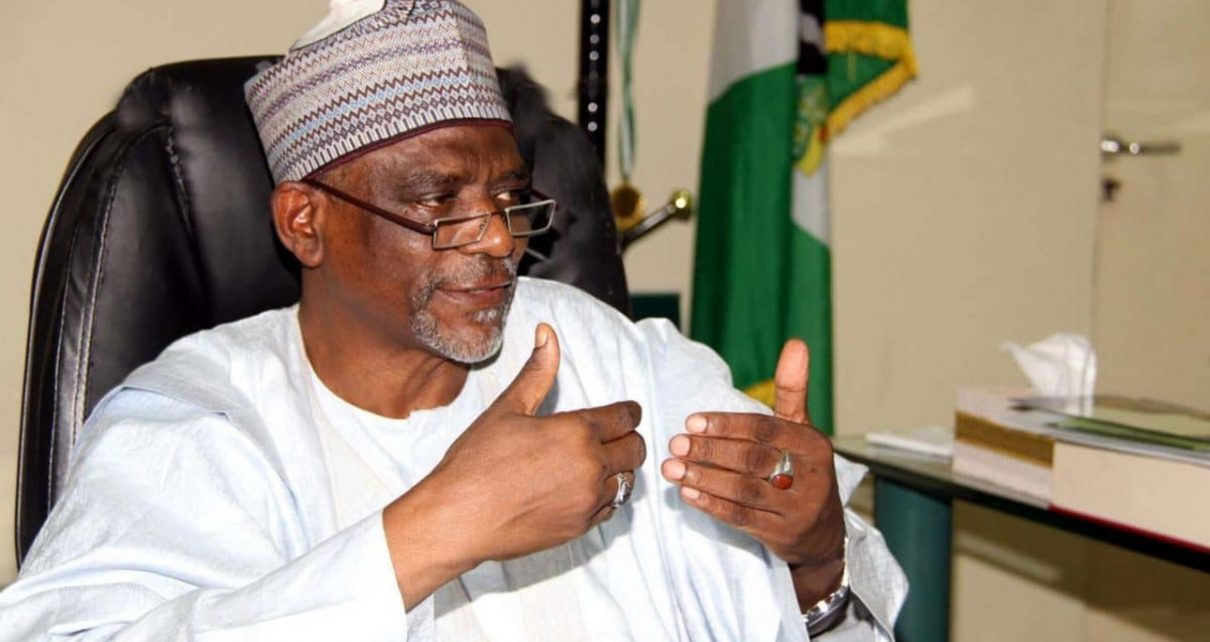In the midst of hazardous issues, the Federal Government has called for coordinated measures to establish a secure environment for teachers and leavers.
At the 66th National Council on Education (NCE) meeting, which was held in Abuja on Thursday, the Minister of Education, Malam Adamu Adamu, made the announcement.
Strengthening of Security and Safety in Nigerian Schools for the Achievement of the Education 2030 Agenda is the theme of the 2022 NCE.
According to Adamu, it is the duty of governments to protect everyone’s right to an education by making sure that all obstacles are taken down.
“The safety and security of all our children must remain paramount, therefore all hands must be on deck to strengthen the security system of our educational institutions.
“Security is a collaborative effort and should not be left in the hands of the law enforcement agents alone.
“As such, all stakeholders in education sector should interface and be involved, through the NCE in order to address the menace of insecurity in our country, which remains one of our biggest challenges.
“The goals of Nigerian education are centred on building a free and democratic society, a just and egalitarian society, a united, strong and self-reliant nation and a great and dynamic economy,” he said.
The minister claimed that this government had successfully raised awareness about the Safe School Declaration (SSD) Initiative and had obtained $20 million from the Global Partnership for Education for accelerated emergency funding for the North East zone.
He continued by saying that it has also built perimeter walls around schools, installed CCTV and alarm systems, and manufactured others in order to develop effective security methods.
While the federal government, several states, and the FCT, according to him, had done their utmost to contain the issue, a number of other states were falling behind.
Therefore, he urged all states to accept their obligations and create a secure learning environment for both instructors and pupils.
The rising percentage of school dropouts, according to Mr. Goodluck Opiah, Minister of State for Education, is also a result of security issues.
He claims that the position of Nigeria among other nations with high rates of out-of-school children (OoSC) is also concerning. Despite government initiatives and other stakeholders’ interventions, the issue still exists as a result of the rising tide of insecurity.
“It is necessary that all stakeholders collaborate and cooperate with the government to address the state of insecurity in Nigeria.
“There is also the need to proffer practical solutions to the menace of insecurity that has bedeviled our institutions.
“Therefore, both kinetic and non- kinetic means should be employed to salvage our educational system. These strategies should be emphasised in both national and state education sector strategic plan,” he said.
Attacks on schools and violence in and around schools, according to Saadhna Panday-Soobrayan, Chief of Education for UNICEF, have catastrophic short- and long-term effects on children’s wellbeing and communities.
She asserts that UNICEF is adamant that investing in high-quality education, particularly for girls, is the single most beneficial move a nation can make to ensure its security as well as its economic well-being.
“Nigeria has a strong policy landscape in support of safe schools. We know what to do to keep our children safe in schools.
“What is now needed is a strong focus on how to deliver coordinated implementation of the minimum standards on safe school at scale and with urgency.
“In this regard, UNICEF is currently supporting the Federal Ministry of Education to develop a national costed implementation plan. This is being replicated for 11 states with the highest risk profiles,” She said.
School safety cannot be addressed in isolation from the other issues affecting Nigeria’s educational system, according to Panday-Soobrayan.
She stated that kids skip school because they don’t feel safe, and when kids don’t go to school and learn, it makes them more likely to engage in risky behaviour like fighting and violence.
“Getting children into school and keeping them there is therefore critical to end the security challenges in the country. The good news is that we know how to do this well.
“The GEPIII projects in the Northwest showed that over a million girls could be brought into primary school through cash transfers, community enrolment campaigns, fixing the basic infrastructure in schools and improving the quality of teaching and learning.
“We now must scale this in earnest to dramatically reduce the number of out-of-school children,” she added.
According to her, if we want to stop Nigeria’s rapid population growth, we must now focus on creating a solid model to ensure that adolescent girls enrol in junior secondary school and continue their education there.
She continued by saying that the solution to the safety issue, the out-of-school issue, and the learning crisis depends on quick, high-quality data access as well as a properly supported educational system.


